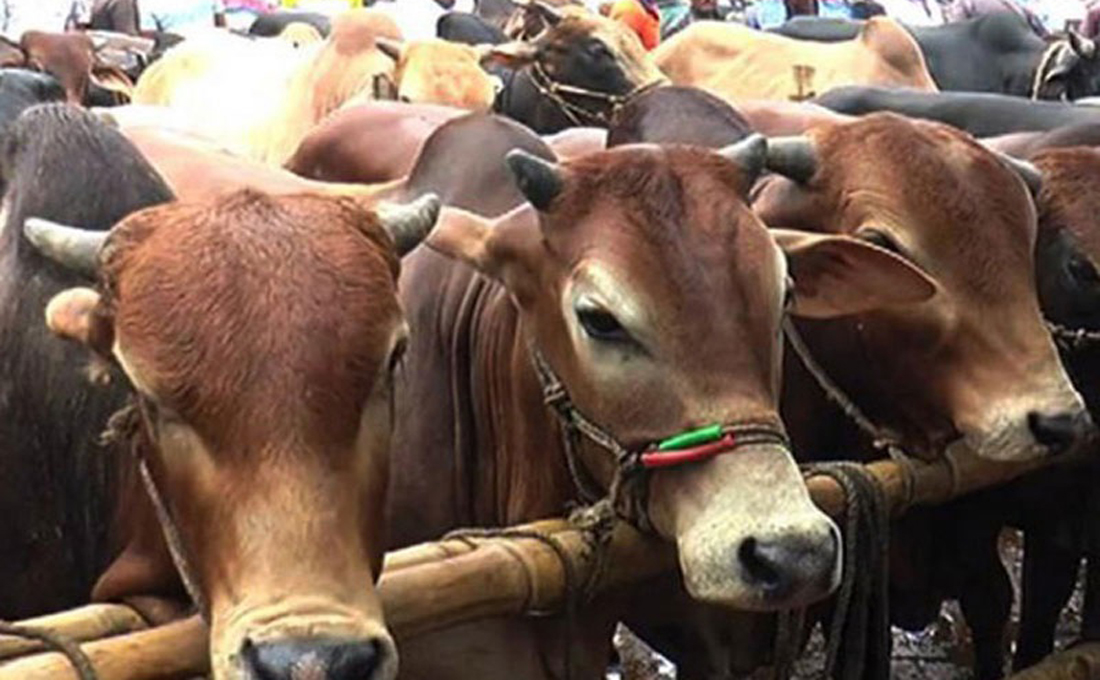
RAJSHAHI, July 19, 2021 (BSS) - Cattle markets here have no scarcity of sacrificial animals with plenty of local animals including imported ones ahead of the Eid-ul-Azha, one of the largest religious festivals of Muslims.
Native animals, including buffalo, bull, oxen, goats and sheep, have been brought for selling in different markets at the last moments of the brisk business.
Abdur Rashid, 48, a farmer of Itaghati village under Paba Upazila, said he sold a bull at City hat yesterday at Taka 1.60 lakh. He also has four more bulls for sale before the Eid.
Atiqur Rahman Kalu, Lease Holder of City Hat, said the cattle markets here are witnessing a record supply of sacrificial animals as farmers boosted up local animal production to meet its growing demand during Eid season.
He mentioned that both in rural and urban areas, the poor and marginalized people including women have achieved tremendous successes in animal production getting various assistance from the government and development partners.
Rajshahi City Corporation allowed installation of some makeshift cattle markets in the city which has already drawn huge cattle.
Traders said there were plenty of supplies of cattle in the markets and the prices were similar to the previous Eid-ul-Azha.
The price of an ideal sized cow or buffalo starts from Tk 30,000 to 1,80,000 and a sheep or goat can be purchased from Tk 8,000 to 35,000 as per its size, they said.
Meanwhile, traders took online to buy and sell sacrificial animals amid the coronavirus situation ahead of the Eid-ul-Adha and the online cattle trading are on the rising trend everywhere in the region.
Uttam Kumar Das, Divisional Director of the Department of Livestock Services (DLS), told BSS that sacrificial animals including, cow, buffalo, goat and sheep, are being sold frequently.
He said the DLS and various other government organizations have launched 142 online outlets besides 1,109 others on social media. Apart from this, five outlets are being operated through government websites. Descriptions and photos of more than 4.5 lakh sacrificial animals were posted on the online markets.
Das said people prefer online markets due to the rising Covid death and infection. "We hope that the number will increase more this year", he added.
Arafat Rubel is selling cattle in his 'Sawdagor Agro' market place. "I've already sold six sacrificial animals last week and the process of another four is going on," he said.
Another farmer Suman Hossain has already sold around 50 sacrificial animals through his Sapura Agro online outlet.
Web-based technologies like whatsapp, facebook messenger, zoom and skype are being used for the trading purposes, Sumon said.
More than 14.88 lakh sacrificial animals, including 3.55 lakh bulls, 1.18 lakh bullocks, 0.87 lakh cows, 25,261 buffalos, 7.74 lakh goats and 14,40 lambs, were reared up for Eid-ul-Azha in the division.
On the other hand, the West Zone of Bangladesh Railway has been transporting sacrificial animals from Chapainawabganj to Dhaka via Rajshahi since Saturday last ahead of the Eid-ul-Azha.
Nasir Uddin, Divisional Commercial Manager of the zone, said the train service is being operated because of the ongoing COVID-19 situation.
He said 20 cattles are being transported to Dhaka in a broad-gauge wagon at a cost of Tk10,810. Per kilometer fare for a wagon load of cattle head (20 cattle heads) has been fixed at Tk 20.
Nasir Uddin also said the decision has been taken to encourage marginal cattle farm owners to carry sacrificial animals easily and at a low cost to Dhaka based on the suggestion of the stakeholders.
The covered wagons of the railway have sufficient windows allowing air inside. Moreover, the trains will run at night so that the animals being carried do not fall ill due to excessive heat at day time.
Measures have been taken so that cattle and cattle traders would also be able to travel to their destinations in the same wagons.
West Zone railway General Manager Mihir Kanti Guha informed, carrying sacrificial animals through the train will both save time and money for the cattle traders.